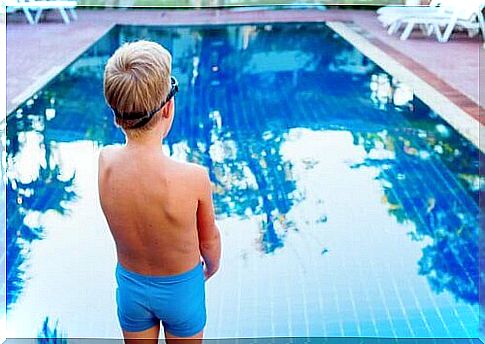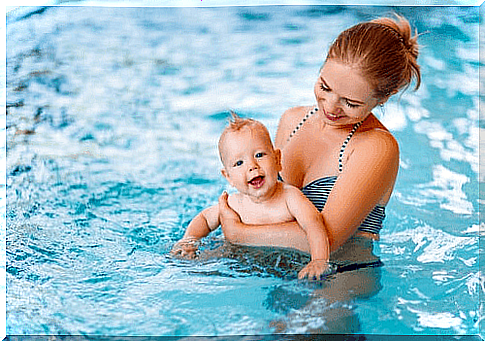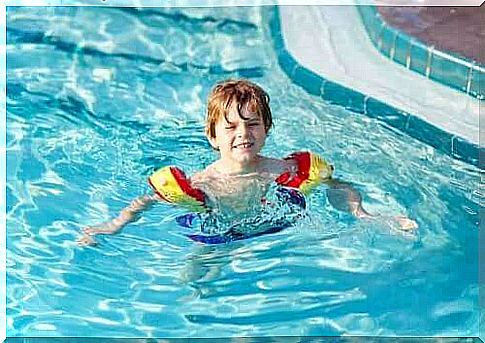Combating Children’s Fear Of Water – Being Parents

Fear of water in children is relatively common, especially in small children. However, it can persist throughout childhood if not treated in time. This is the reason why it is recommended to fight it from the start.
Indeed, many children are afraid of swimming or, more precisely, of putting their heads under water. Consequently, it is desirable to expose children to water as early as four or five months to develop their feeling of familiarity and safety with this element.
What is the reason for the fear of water in children?
This common feeling of fear of water in children is sometimes brought on by a traumatic experience in the past. The most typical case is the sensation of water entering the nose or not being able to breathe with water on the face.
We need to be careful and observe if the child seems to be afraid of water in everyday life. The water rejection reaction can also be confused or associated with fear of crowds. Swimming pools and beaches are usually very crowded places; it is possible that what frightens him is more people than water.
In addition, it may happen that a child who is slightly afraid of water is more distressed by the intimidating older children playing around him. In these cases, parents must know how to interpret the emotions of the little one.
Tips on how to fix it
The following recommendations can be of great help to parents facing this situation. Obviously, beyond putting them into practice, it is essential to remain tolerant and patient.
- Children should have a healthy respect for water, one of the most dangerous elements in their environment. On all occasions, the little ones must be careful, while the adults must never cease to be vigilant.
- Avoid putting pressure on the child to go into the water; it is recommended that the child be allowed to watch and observe other children having fun. This observation period will allow him to prepare and get used to it more safely.

- Give him some time to find the courage. Sometimes parents make matters worse by insisting that the child take the water immediately; this can increase his anxiety level even before he begins to interact with water.
- Help him gain more control over what he is doing. Ideally, choose a quiet place away from other children. Likewise, it is very positive to set basic rules and standards on how you play and swim. This can give children the peace of mind they need to get in the water.
- Use plugs for the nose and ears. Fears are sometimes caused because children don’t like the feeling of water getting into their nose. Glasses for seeing underwater can also alleviate their fears.
How to help children overcome their fear of water?
In addition to the recommendations that we have just shared with you, it is also possible to put in place some useful measures to help children overcome their fear:
- We must encourage and reward children in their progress to approach water. Positive reinforcement is one of the best strategies; although it may take a little while, the child will eventually associate being in the water with something positive.
- Try out fun games that teach you to hold your breath. These exercises will help the child gain confidence.
- To help them overcome their fear of water, we can also try this exercise: in the water with the child, we ask him to put his face just above the surface and to lower it little by little. Thus, the child will be able to verify for himself that there is nothing scary underwater; moreover, he will no longer be afraid to put his head under water.
- Use any means possible to make your child feel safe in the water. There are many objects to facilitate its comfort: armbands, buoys, inflatable vests, among others.

- Children feel more comfortable knowing that the water is safe and fun. To this, you can add water toys, like water or bubble guns, to reassure them that they have nothing to fear.
Finally, our final recommendation would be to provide a pool for the children to play at home, even if it is a small inflatable pool. This way, you can organize afternoons in the pool with friends. Seeing the others having fun, there is no doubt that the little one afraid of water will want to join them.









